ABOUT US
About the Internet Governance Forum
The global Internet Governance Forum
IGF) was initiated as a direct result of the UN World Summit on the Information Society – WSIS established by the United Nations and held first in Geneva in 2003 and then in Tunis in 2005.
The IGF is an international arena for discussion and cooperation in areas relating to the development of the information society, Internet governance and issues facing the Internet as a whole. The IGF is not a decision-making body but rather a forum at which the problems defined and approaches discussed can be formulated into public, international or national policies and presented to other bodies, whether to those within the UN or to other international organisations or governments, for their consideration.
The range of subjects cover technical, legal, economic and social aspects, including the topics of:
- primary infrastructure and global regulations for management of primary resources
- (critical information infrastructure, internet service and bandwidth providers, the IPv4/IPv6 protocol, IP/DNS/IDN, open standards);
- cybersecurity, cyber conflict, cybercrime, child safety;
- access to information and knowledge (digital media, intellectual property rights);
- the economy (e-commerce, taxation, the gig economy, labour rights);
- human rights (freedom of speech, privacy and anonymity, hate speech and violence, content policy, ethics);
- development (universal access, education and digital literacy, emerging technologies, e-governance and services, e-health);
- regulatory aspects (relationship between regulators, service providers and tech companies, civil society and users; approaches to governance, policies and regulatory issues at the global, regional and national level).
IGF brings together a broad range of stakeholders: representatives from many countries (both developed and developing), representatives of the business sector (companies such as Telefonica, Microsoft, CISCO, Google), technical communities (ICANN, RIPE NCC, CERTs), networks of non-governmental organisations (such as EDRI, ISOC and APC), international organisations and institutions (such as the European Parliament, the Council of Europe, UNESCO, OECD, ENISA) and telecoms regulators (such as the FCC, NTRA, NPT, OFCOM). Other frequent participants include Vint Serf and Bob Kahn, “Fathers of the Internet”, European MEPs, General Secretaries of the ITU and UNESCO, company CEOs and others.
Since 2006, the international IGF meeting has been held once annually in different corners of the world (from Athens to Rio de Janeiro, to Nairobi, to Hyderabad, to Katowice) and brings together between one and two thousand professionals from all over the world. This year the IGF meeting will be held in Addis Ababa, the capital of Ethiopia and of the African Union on the theme Resilient Internet for a Shared Sustainable and Common Future.
Regional and national processes since 2008
In addition to the global IGF under the patronage of the UN, a large number of national and regional IGF initiatives (NRIs) have also been established. The European process, known as the European Dialogue on Internet Governance (EuroDIG) has existed since 2008, organised by the Council of Europe, the EBU, Swiss OFCOM, the European Commission and many other partners.. Belgrade has hosted the meeting, in 2011. Institutions and organisations from Serbia have been regular participants in EuroDIG and in 2021 Belgrade hosted one of the centres of the event, which was held in a hybrid format. In the South-Eastern European region there is also SEEDIG, in which organisations and professionals from Serbia take active part, and there are a number of national IGF processes too.
Dialogue in Serbia
The first meeting to focus on IGF themes in Serbia was held in 2009 in the form of a panel debate titled “Serbia in the international information society process”, with several ministers and the director of RATEL in attendance. Between 2012 and 2014 the annual Serbian Internet Dialogue was held, with the participation of numerous institutions, companies and organisations and active discussion of key topics of significance to Serbia and digital policy in this country.
The Serbian Internet Governance Forum (IGF Serbia), for the first time under this name and as part of the NRI network of the global IGF, represents the continuation of national discussions about digital policy and internet governance. It has been initiated in the multi-stakeholder spirit of IGF as the shared initiative of several organisations and institutions, under the auspices of the Ministry. The establishment of a national IGF is also one of the objectives set out in the Serbian Information Society and Information Security Development Strategy which was approved in autumn 2021 and runs until 2026.
The intention of the organisations and institutions which initiated and which organise and support IGF Serbia was to have an annual meeting in the coming years which will grow into an open, inclusive, public, open, constructive and useful process that helps shape national digital policy, thus creating the conditions for further digitalisation whilst preserving the rights of citizens. This outcome will largely depend on the interest and involvement of the public at large and of a significant number of institutions, companies and organisations going forward.
More information
More information on Internet Governance can be found on the websites of the IGF, EuroDIG and SEEDIG, as well as in the book Introduction to Internet Governance, published by the DiploFoundation.
